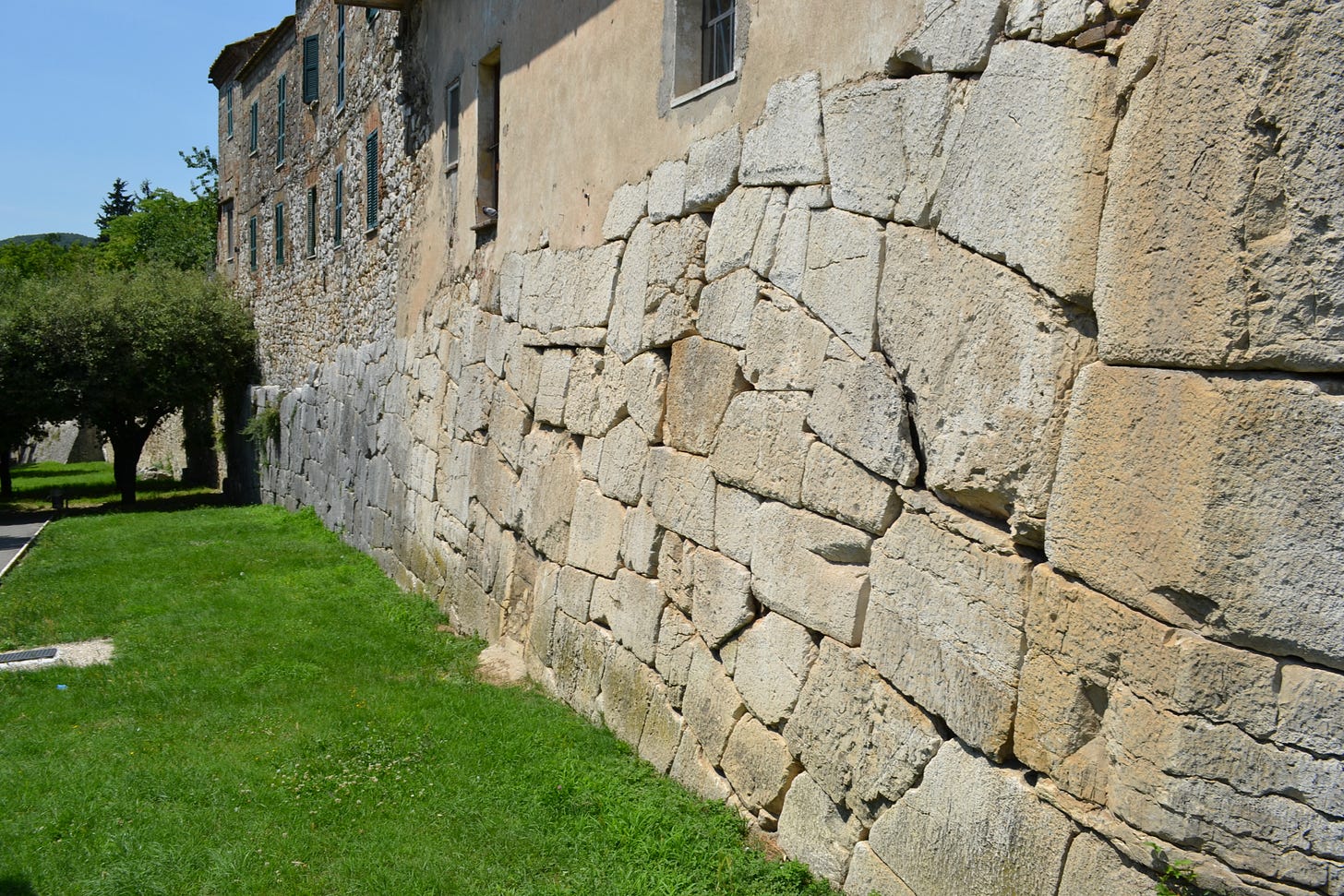Our Word of the Week is a phrase for a change — in our now-and-again category of “Figuratively Speaking.” Everybody knows what it means “to bend the rule” — or do we?
When you make a law, you are necessarily dealing with the general case. That’s just the nature of the beast. So Aristotle observed, and Thomas Aquinas developed the point, and it has entered into western legal thought. Spenser says it is “that part of justice which is equity,” and, oddly enough, equity implies that you do not always treat everybody the same, according to a rule applied mechanically. That’s because the lawgiver can’t possibly anticipate every single case that’s going to arise. We don’t play fast and loose with the rules — that’s not the judge’s right. But we do try to ascertain what was in the lawgiver’s mind, so that, as far as we can determine it, we’d make the decision he himself would make in the special or unusual case. That’s not in opposition to the law but in harmony with it.
Here’s what Aristotle compared it to: a “rule” used by the masons on the island of Lesbos. As far as I understand it, when they were building walls with odd-angled stones, they got out a strip of lead and pressed it into the shape of the cavity they were going to fill, and that would give them a good idea of which stone in the heap would be best suited for it. It was a way of dealing with individual stones and not, let’s say, bricks of all the same shape and size. A rule here is not a law, but literally a rule: a measuring stick.
The word rule comes to us from the Norman French, but originally from Latin regula, a straight stick, a measuring rod. The word was adopted early on for figurative uses. So when the monks of Saint Benedict followed the instructions of their founder, they were following a regula, which became Old French reule and English rule. You weren’t supposed to break the Rule, but at the discretion of the abbot or someone else in authority, some individual directive of the Rule could be made flexible for the occasion, because the true governing rule was to be the love of God and the love of neighbor.
The word regula comes from the ancient root reg-, to move in a straight line, and such an important root has descendants all over our family tree. Rogers Hornsby, Hall of Fame second baseman for the Cardinals, was called Rajah, punning on his name and on Hindi raja, king. Our next door neighbors when I was a boy had a beagle named Rex: that’s Latin for king, and that’s also one of the descendants. If you walk in a direct way, that’s also from Latin, and it means you’re moving straight. In Old English, riht means straight, right, as opposed to wrang, which suggests something that’s crooked, twisted, awry. In Welsh, rhaith is a moral or legal right to something, and cyfraith is the law.
When I think of bending the rules, I’m reminded of two things that happened in the summer between my junior and senior years in college, when I got a job selling high-quality (and expensive) pots and pans and china and cutlery door to door, and earned a nice bit of change to help pay my tuition, and a five-day all-expenses-paid trip to Bermuda with 100 other college kids and the company executives. The first thing was this. We had two managers in our little office, and three salesmen. The managers went out selling on their own, and the three of us didn’t need much managing, as out of about 160 kids we finished 3rd, 6th (me), and 18th. But rules were rules, and so one of the managers went out with our top guy, John, and he shrugged and said, sure, why not? Any sales that you made when your manager was with you, you split two ways. S
o this particular day, John said to the manager, “Before we go anywhere, I have to get this signature on a contract from yesterday,” because the young lady had left it inadvertently blank. So she came into the house with him, and they got the signature in a minute, and then they went about their business. But when his pay came in for that week, it was $150 short. You see, we got bonuses if we cleared more than $1000, $2000, or $3000 in sales for the week, and he thought he’d cleared $3000. But the manager said that she had logged the sale as belonging to them both. “Those are the rules,” she said. It cost him half of the commission, and the $100 difference between the highest bonus and the middle bonus. He told me about it after the summer was over.
Meanwhile, I’d rallied and come in 6th for the company, but just in the last two weeks, I’d made a huge sale to a couple of twins — a double sale. I’d been paid the commission, too, and the highest bonus. But just as the executives were preparing for Bermuda, they found out that those twins were going to default. That would have knocked me out of the top 10, and it would have been really discouraging. Yet the execs did not interpret the rule so strictly in my case, because what they wanted most of all was that the college kids would succeed, and they did also want to secure a good salesman for the next summer. They let the matter slide. They were not going to hang themselves by their own rope. And it was kindly meant for me too, and I appreciated it.
Managing something, governing something, is an art, and all the arts have rules. But rules are general, and what you’re looking at in front of you isn’t. Then, as I say, you don’t treat everybody in every situation exactly the same. Justice is a bigger thing than that.

Word & Song by Anthony Esolen is an online magazine devoted to reclaiming the good, the beautiful, and the true. We publish six essays each week, on words, classic hymns, poems, films, and popular songs, as well a weekly podcast for paid subscribers, alternately Poetry Aloud or Anthony Esolen Speaks. Paid subscribers also receive audio-enhanced posts and on-demand access to our full archive, and may add their comments to our posts and discussions. To support this project, please join us as a free or paid subscriber. We value all of our subscribers, and we thank you for reading Word and Song!
Listen to this episode with a 7-day free trial
Subscribe to Word & Song by Anthony Esolen to listen to this post and get 7 days of free access to the full post archives.













